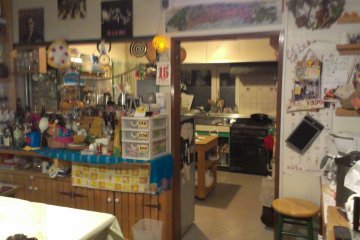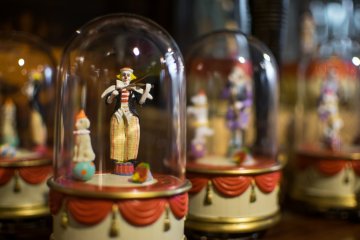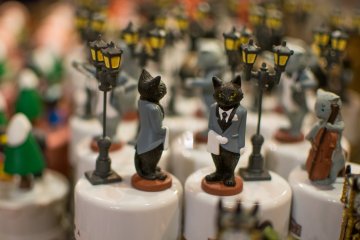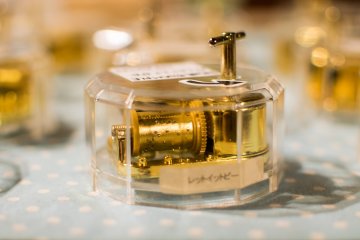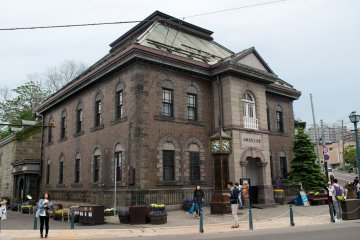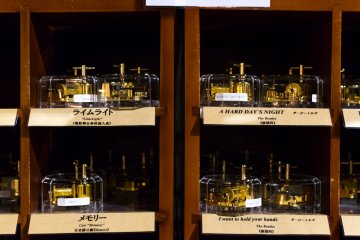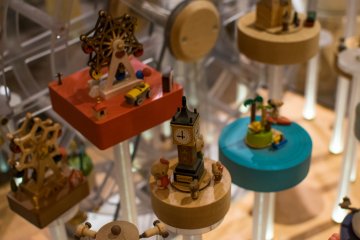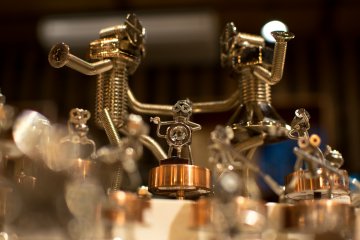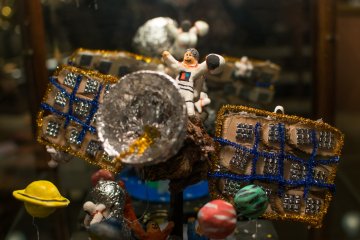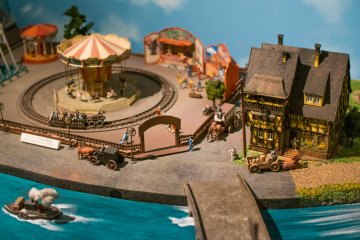Characterised by its creaking wooden floorboards, shining ornaments, and ever-present twinkling of intricately designed music boxes, Otaru Music Box Museum feels almost a homey escape to the nineteenth century Swiss Alps. Anyone who visits will appreciate the magical atmosphere of the setting, especially if visiting on a cold winter’s day.
The museum and store space is spread across a number of buildings around the Ironai-dori area, which in all contains over 25,000 music boxes. Each of the buildings can be appreciated in their own right for their elegant western-influenced Meiji-era architecture, unique histories, and the different wares they offer. For example, while the large main building itself was built in 1912 as an office for grain and rice trade, it has been designated a municipal historic building and today features the most substantial space of the music box museum. If you’re time in Otaru is limited, be sure to at least commit some time to the antique museum and the main building of the complex.
The antique museum is where you should start after arriving. This building features some of the oldest musical devices to be found in Otaru, including French music boxes from the nineteenth century, a grand English organ, and pianos — many items, each very unique, each very old. When you pass over to the main building, go to the second floor to explore some more antique phonographs and furniture, before descending to the main store space. Even visitors not intending to buy can kill a lot of time simply marvelling in the designs of the items on sale, and there's no doubt the music box renditions of famous songs will fill any visitor with joy. For those most taken by the boxes, the roof space offers a service where they may design their own, with options including the music played and the external design.
The Otaru Music Box Museum can be enjoyed with as much or little effort and cost as desired. Simply walk in and be swept away with the atmosphere.



